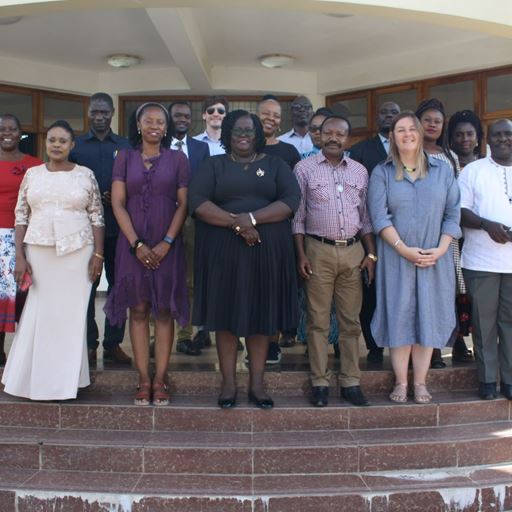The British Academy has announced its plans to award ten ongoing projects further funding in a bid to maximise their impact of cutting-edge research in developing countries.
Funded by the Department for Science, Innovation and Technology, each of the Maximising Impact Programme projects, will receive up to £50,000 with an aim to bring valuable insights and perspectives to their original research.
The Essex-based project which has been awarded this funding is called 'Supporting Multilingualism in Practice: Resource co-creation in primary classrooms in Tanzania'. It will allow the research team to use findings from a previous project to develop and pilot the production of materials which can be used to support multilingual learning practices in classrooms.
The previous project, Bringing the outside in: merging local language and literacy practices to enhance classroom learning and achievement, was carried out between 2019 and 2022 and was a collaboration between the University of Essex, the University of Botswana, the University of Zambia and the University of Dar es Salaam (Tanzania).
Despite the fact these countries are multilingual, they all have monolingual language in education policies which prioritise a single language for use in schools.
Tanzania has some 150 languages; however, the education policy states that Swahili is to be used as the “medium of instruction” in primary schools. This means that official policy makes no allowance for large proportions of the languages spoken in the country. Therefore, many of the children in these classroom settings often cannot access or understand the language being spoken by the teacher.
The project explored the tensions created when one official – or national – language is promoted and taught in schools ahead of other languages within multilingual communities.
Speaking on behalf of the team, Professor Nancy Kula said: “During the project, we saw many different practices in the classroom. In multilingual contexts, students may arrive at school without knowing the language of instruction. This can have a significant impact on both outcomes and their experiences of formal education.
“However, we also found that students and teachers are creative and adapt to the circumstances and requirements of the situation. We are now particularly interested in working with teachers and teacher training programmes to see how multilingual approaches to teaching and learning can be better supported in practice.”
The team’s newly-funded project will focus on the situation in Tanzania – and will build on recommendations made in one key area where the findings can be implemented and can make a real difference to policy and practice.
“We focused on Tanzania after carrying out a workshop there with teachers,” explained Professor Kula. “They suggested working together to create resources and we thought this was a great idea.”
This new funding will allow the team – Professor Nancy Kula, Dr Hannah Gibson, Dr Tracey Costley and Dr Colin Reilly from Essex, and Professor Gastor Mapunda from the University of Dar es Salaam – to convert their findings into practical application, working in collaboration with representatives from the Tanzania Association of Language and Subject Teaching (TALAST).
Professor Kula said: “We are delighted to receive this funding to further our research and work in this area. It will allow us to do important work towards making education spaces more inclusive and improving the educational experiences and outcomes for students across Tanzania.
“It is also exciting to be able to work closely with teachers to gain from their expertise and experiences, and to develop multilingual materials and approaches to teaching.”
The project will design and implement creative methods for the development of classroom materials for use in primary education in Tanzania. The research will include project meetings, practical training workshops and development workshops with teachers and students at three schools in different regions.
“The project findings will be directly relevant for Tanzania, but the model of training, and the bringing together of researchers, academics, teachers and learners will be widely applicable to a range of contexts both in Africa and beyond,” Professor Kula added.

.jpg?mh=500&mw=500&hash=6568B6C9CCF5290A596BEF6678B6AD0E)




